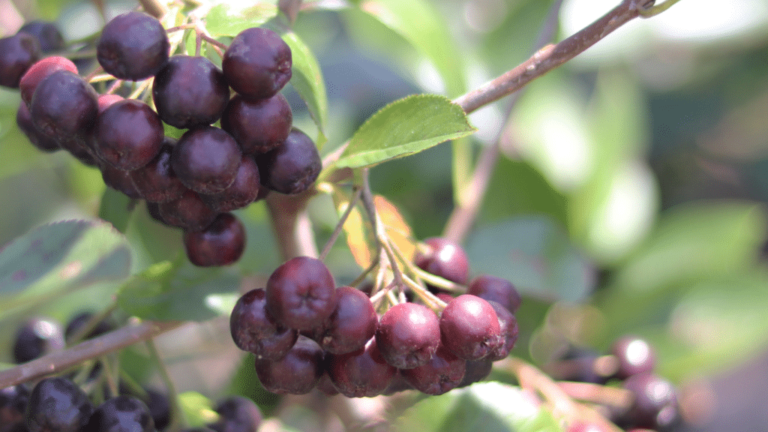Acai berries have gained a lot of publicity and popularity as a superfood. Of course, it makes sense that cosmetic chemists and skin care brands would want to capitalize on these benefits. There are some widespread skin benefits of acai berry. But how does this little purple berry live up to its skincare hype? Let’s delve into the science behind acai berries in skin care.
Origin of Acai Berry
Natural ingredients are common ingredients in skin care. They can provide many benefits, including hydration, antioxidant protection, and even radiance. Acai berries are one of the many natural ingredients that have gained popularity due to their potential benefits
Related post: What are natural materials?
The acai palm is a tree native to the Amazon region of North and South America. The acai berry is a small round fruit produced by the tree. It has been a staple food for indigenous communities for centuries. The seed makes up 80-95% of the fruit and the pulp the rest. Acai berries can be purple or white. However, the purple acai berry is what you’ll see the most. In skin care, acai extract can be an extract from the berries, the oil from the seeds, or a powder from the pulp.

So what does the science say about the skin benefits of Acai Berry
Acai berries have gained significant attention in skin care due to their high antioxidant content. Basic research suggests the potential benefits of acai berries in skin care. However, more human studies are needed to reach definitive conclusions. I could not find any peer-reviewed clinical studies evaluating the skin care benefits of acai berries.
Most of the marketing claims for acai berries come from their antioxidant properties. Polyphenols, anthocyanin and flavonoids are the two important antioxidants in acai berries. Antioxidants are essential in skin care because they can help fight free radicals.

Free radicals are unstable molecules produced by UV rays and the environment. They can damage skin cells and contribute to signs of premature aging, such as less elastic skin and fine lines and wrinkles.
Related Post: Understanding the Science Behind Skin Aging: Tips for a Youthful Glow
In addition to the benefits commonly associated with antioxidants, a study in mice showed that acai berry extracts improved skin elasticity. The study results suggest that acai extract may help reduce the appearance of wrinkles, but confirmation of this effect in humans and the amount of acai extract needed to achieve this effect requires more research.

While acai berries have promising intrinsic properties, particularly their antioxidant content, more clinical research with human participants is needed to confirm their effectiveness in topical skin care products. Current research focuses on their biochemical potential rather than established clinical outcomes in humans. So, if you’re looking for an antioxidant to complement your sunscreen and protect your skin from free radicals, in that case, there are some other more science-based options like vitamin C!
conclusion
Acai berries hold promise as a skin care ingredient because they contain a high concentration of antioxidants. However, more human studies are needed to substantiate the claims. If you’re considering incorporating acai into your routine, look for reputable skin care brands with clinical data to back up their product claims.
bibliographical references
- Boeira, LS, Cád, SV, Bezerra, JA, Benavente, CT, Neta, MTSL, Sandes, RDD, & Narain, N. (2023). Development of alcoholic vinegars infused with ACAI (Euterpe precatoria Mart.) berries and their quality evaluations with emphasis on color, antioxidant capacity and volatile profile. Journal of Food Science88, 666–680.
- Matta FV, Xiong J, Lila MA, Ward NI, Felipe-Sotelo M, Esposito D. Chemical Composition and Bioactive Properties of Commercial and Non-Commercial Purple and White Açaí Berries. Food. 2020? 9(10):1481.
- Piazza S, Fumagalli M, Khalilpour S, Martinelli G, Magnavacca A, Dell’Agli M, Sangiovanni E. A Review of the Potential Benefits of Plants Producing Berries in Skin Disorders. Antioxidants. 2020? 9(6):542.
- Sun M, Deng Y, Cao X, et al. Effects of natural polyphenols on skin and hair health: a review. Molecules. 2022;27(22):7832.
